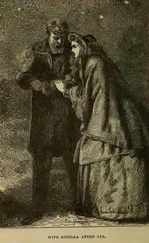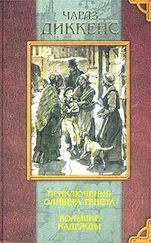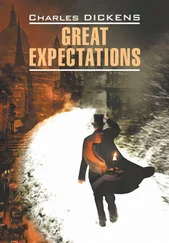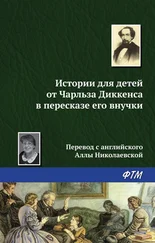We shook hands, and he looked hard at me as long as he could see me.
Next day the clothes I had ordered all came home, and he put them on. One night I was roused by the welcome footstep on the staircase.
“Quiet! It’s Herbert!” I said.
“Handel, my dear fellow, how are you, and again how are you, and again how are you? Handel, my – Halloa! I beg your pardon.”
He was stopped in his running on and in his shaking hands with me, by seeing Provis.
“Herbert, my dear friend,” said I, shutting the double doors, while Herbert stood staring and wondering, “something very strange has happened. This is a visitor of mine.”
“Though, look here, Pip’s comrade,” he said to Herbert, “I know the life very well. I made Pip a gentleman, and Pip is going to make you a gentleman. Dear boy, and Pip’s comrade, you two may count upon me.”
Herbert said, “Certainly,” but looked as if there were no specific consolation in this, and remained perplexed and dismayed. It was midnight before I took him round to Essex Street, [208]and saw him safely in at his own dark door. When it closed upon him, I experienced the first moment of relief I had known since the night of his arrival.
Herbert received me with open arms, and I had never felt before so well what it is to have a friend. When he had spoken some words of sympathy and encouragement, we sat down to consider the question, What was to be done?
“What,” said I to Herbert, – “what is to be done?”
“My poor dear Handel,” he replied, holding his head, “I am too stunned to think.”
“So was I, Herbert. Still, something must be done. He is intent upon various new expenses [209]– horses, and carriages, and lavish appearances of all kinds. He must be stopped somehow.”
“You mean that you can’t accept – ”
“How can I?” I interposed, as Herbert paused. “Think of him! Look at him! Yet I am afraid the dreadful truth is, Herbert, that he is attached to me, strongly attached to me!”
“My poor dear Handel,” Herbert repeated.
“Then,” said I, “after all, stopping here, never taking another penny from him, think what I owe him already! Then again: I am heavily in debt – very heavily for me, who have now no expectations, and I am fit for nothing. [210]”
“Well, well, well!” Herbert remonstrated. “Don’t say fit for nothing.”
“What am I fit for? I know only one thing that I am fit for, and that is, to go for a soldier. [211]”
“Anyhow, my dear Handel,” said Herbert presently, “soldiering won’t do. Besides, it’s absurd. You would be infinitely better in Clarriker’s house. I am working up towards a partnership, you know.”
Poor fellow! He little suspected with whose money. But what was to be done?
“The first and the main thing to be done,” said Herbert, “is to get him out of England. You will have to go with him.”
Herbert got up, and linked his arm in mine, and we slowly walked to and fro together, studying the carpet.
“Handel,” said Herbert, stopping, “you feel convinced that you can take no further benefits from him; do you?”
“Fully. Surely you would, too, if you were in my place?”
“And you feel convinced that you must break with him?”
“Herbert, can you ask me?”
“Then you must get him out of England.”
We went to bed. I had the wildest dreams concerning him.
He came round at the appointed time, took out his knife, and sat down to his meal. He was full of plans. When he had made an end of his breakfast, and was wiping his knife on his leg, I said to him, without a word of preface —
“I told my friend of the struggle that the soldiers found you engaged in on the marshes. You remember?”
“Remember!” said he. “I think so!”
“We want to know something about that man – and about you.”
“Dear boy and Pip’s comrade. I am not a going to tell you my life like a song, or a story-book. In jail and out of jail, in jail and out of jail, in jail and out of jail. That’s all. That’s my life.
I knew my name to be Magwitch, Abel Magwitch. Tramping, begging, thieving, [212]working sometimes when I could. A deserting soldier learnt me to read; and a travelling Giant [213]learnt me to write.
At Epsom races, [214]twenty years ago, I got acquainted with a man. His right name was Compeyson; [215]and that’s the man, dear boy, whom I was pounding in the ditch.
‘What can you do?’ said Compeyson.
‘Eat and drink,’ said I.
Compeyson laughed, looked at me again very noticing, gave me five shillings, and appointed me for next night.
I went to Compeyson next night, and Compeyson took me on to be his partner. And what was Compeyson’s business? Compeyson’s business was the swindling, handwriting forging, stolen bank-note passing, and such like. [216]He was as cold as death, and he had the head of the Devil.
There was another in with Compeyson, Arthur. [217]Arthur and Compeyson had made a bad thing with a rich lady some years before, and they’d made a pot of money by it. [218]At last, me and Compeyson was both committed for felony. Compeyson said to me, ‘Separate defences, no communication,’ and that was all.
Compeyson blamed me, and everybody was convinced that I was to blame alone. So my punishment was much harder. When we’re sentenced, he got seven years, and I got fourteen. I said to Compeyson that I’d smash his face!”
“Is he dead?” I asked, after a silence.
“Is who dead, dear boy?”
“Compeyson.”
“He hopes I am, if he’s alive, you may be sure,” with a fierce look. “I never heard anymore of him.”
Herbert had been writing with his pencil in the cover of a book. He softly pushed the book over to me, as Provis stood smoking with his eyes on the fire, and I read in it: —
“Young Havisham’s name was Arthur. Compeyson is the man who was Miss Havisham’s lover.”
I shut the book and nodded slightly to Herbert. We did not say anything, and both looked at Provis as he stood smoking by the fire.
If Compeyson were alive and should discover his return, I could hardly doubt the consequence. Compeyson is afraid of Provis and will become an informer.
I did not tell Provis about Estella. But, I said to Herbert that, before I could go abroad, I must see both Estella and Miss Havisham. I resolved to go out to Richmond next day, and I went.
Mrs. Brandley told me that Estella had gone into the country. Where? To Miss Havisham, as usual.
Another night consultation with Herbert after Provis led us to the conclusion that nothing should be said about going abroad until I came back from Miss Havisham’s.
When I drove up to the Blue Boar after a drizzly ride, whom should I see come out under the gateway, toothpick in hand, to look at the coach, but Bentley Drummle!
“Oh!” said I, “it’s you, is it? How do you do?”
“You have just come down?” said Mr. Drummle.
“Yes,” said I.
“Beastly place,” said Drummle. “Your part of the country, I think.”
Here Mr. Drummle looked at his boots and I looked at mine, and then Mr. Drummle looked at my boots, and I looked at his.
“Have you been here long?” I asked, determined not to yield an inch of the fire.
“Long enough to be tired of it,” returned Drummle, pretending to yawn.
“Do you stay here long?”
“Can’t say,” answered Mr. Drummle. “Do you?”
“Can’t say,” said I. “Mr. Drummle, I did not seek this conversation, and I don’t think it an agreeable one.”
“I am sure it’s not,” said he.
“And therefore,” I went on, “I will suggest that we hold no kind of communication in future.”
Читать дальше
Конец ознакомительного отрывка
Купить книгу












